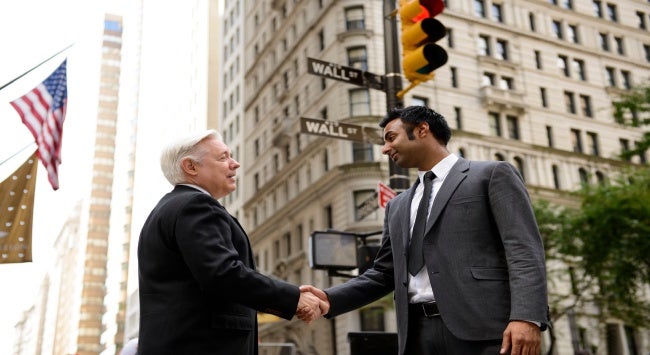Summary
The H1-B visa fee hike further hits a sinking trade deal between India and the United States. Domestic politics limit flexibility for both given the near-term elections.
The United States (US) has announced a one-time visa fee of US$100,000 (S$128,000) for all new H1-B visa applications. There is much concern in India over its impact. The concern is both for prospects of potential skilled migration from India to the US and for the stalled India-US trade deal.
Indian information technology (IT) professionals are the largest recipients of H1-B visas from the US. Indians received more than 70 per cent of H1-B visas issued in 2024. This was far more than the second largest group – the Chinese – who received around 12 per cent. Historically, Indians have been the highest recipients of H1-B visas. They received around 60 per cent of the total visas issued between 1997 and 2024, far outnumbering any other nationality.
The increase in H1-B visa fees is arguably to discourage US businesses from hiring cheap foreign labour. The US administration underscores ‘systemic abuse’ of the H1-B programme to justify the decision. The abuse is ostensibly because, instead of supplementing local workers with high-skilled foreign workers, H1-Bs have become the pathway to replace local workers with lower-paid foreign workers. The trend, as argued by the decision, is particularly overwhelming in the IT industry.
The visa fee hike comes at a stressed point in India-US relations. Bilateral ties have soured over the imposition of 50 per cent tariffs by the US on Indian exports. Half of the tariffs are due to India being penalised for buying Russian oil. India, though, has not curbed Russian oil purchases, notwithstanding the difficulties caused by the high tariffs for some of its major exports.
H1-B visas have complicated India-US trade ties in the past as well. Higher visa fees became a major point of contention between the two countries during the Barack Obama administration as well. The decision to raise fees led to India initiating dispute proceedings at the World Trade Organization. Then Indian Finance Minister, Arun Jaitley, described the fee hike as ‘discriminatory’ and specifically ‘targeted’ towards Indian IT companies.
American technology companies – Amazon, Cognizant, Microsoft, Google, Walmart, Capgemini and Goldman Sachs – are among the largest users of H1-B visas, along with leading Indian IT firms like TCS, Infosys and Wipro. Over the years, large US technology firms have been outsourcing recruiting requirements for basic functions like programming to consulting firms such as Cognizant, Wipro and Infosys. This has led to large recruits under H1-B, especially from India.
If the H1-B system is indeed being abused, then the perpetrators are US firms, particularly big-technology firms. If these companies decide not to hire foreign labour, then H1-B visa applications would sharply decline. Indian IT professionals, along with those from other countries migrating to the US under the programme, are simply responding to market demands of the US technology companies. Employing foreign skilled workers at wages lower than those paid to local American workers lowers costs and raises profits for US firms. If this is ‘systemic abuse’, then the abusers are easy to identify.
The US has clarified that the new visa fees will not apply to existing holders, as well as to the renewal of existing visas. Even then, the hike will squeeze future applications. How that would specifically impact the Indian IT and other high-skilled professionals will depend on what alternatives they have. Many of them might be absorbed by the Global Capability Centres in India, several of which are run by US technology firms.
The decision has made the ground even more slippery for the US-India trade deal talks. Neither side will be inclined to compromise on key demands for fear of upsetting key domestic constituencies.
Revising the decision on H1-B visas will rile many President Donald Trump’s supporters, who are anti-immigrants and upset with Indian professionals for snatching local jobs. With the US mid-term elections due in late 2026, it is important to appease these supporters. Already, several Republican supporters from the farming sector are unhappy over India refusing to lower tariffs on US farm exports, especially corn and dairy. India is clearly a ‘whipping boy’ in Trump’s domestic politics – made more so due to its purchase of Russian oil and recent cosying up to China.
India, on the other hand, will not cross the red line of lowering tariffs on agricultural imports. Major state assembly elections like those in Bihar, West Bengal and Tamil Nadu are due over the next one year. Relenting on farm sector tariffs can have major implications for the Narendra Modi government in these elections.
The H1-B visa fee hike has tightened the noose on a choking trade deal between the US and India. With domestic politics reducing policy flexibilities for both governments, a breakthrough seems unlikely till near-term elections are over. By then though, the already stressed bilateral ties might be further damaged.
. . . . .
Dr Amitendu Palit is a Senior Research Fellow and Research Lead (Trade and Economics) at the Institute of South Asian Studies (ISAS) in the National University of Singapore (NUS). He can be contacted at isasap@nus.edu.sg. The author bears full responsibility for the facts cited and opinions expressed in this paper.
Image Credit: Shutterstock
-
 More From :
More From :
-
 Tags :
Tags :
-
 Download PDF
Download PDF



